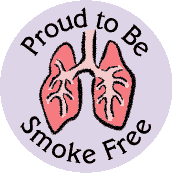 What
happens when one spouse
What
happens when one spouse smokes cigarettes and the other spouse
doesn’t? Ironically, both of them can die of lung cancer or
other related diseases. Although one spouse might be quite
aware that the other partner smoked long before they got
married, she reasons that since she is not smoking there should
be no harm done to her. We know
today that this is far from the truth. These same couples end
up arguing over cigarette smoking in the home or car until
finally the marriage ends. It is safer to have a smoke-free
marriage for the sake of the marriage and the lungs. I suggest
that while courting or selecting a mate and one discovers that
the person smokes, even if it is one cigarette every three
months; do not stay in the relationship. The cigarette smoking
will get more frequent as the years go by, and it will add undue
stress on the marriage even leading to divorce.
smokes cigarettes and the other spouse
doesn’t? Ironically, both of them can die of lung cancer or
other related diseases. Although one spouse might be quite
aware that the other partner smoked long before they got
married, she reasons that since she is not smoking there should
be no harm done to her. We know
today that this is far from the truth. These same couples end
up arguing over cigarette smoking in the home or car until
finally the marriage ends. It is safer to have a smoke-free
marriage for the sake of the marriage and the lungs. I suggest
that while courting or selecting a mate and one discovers that
the person smokes, even if it is one cigarette every three
months; do not stay in the relationship. The cigarette smoking
will get more frequent as the years go by, and it will add undue
stress on the marriage even leading to divorce.
NON-SMOKERS CANCER
I think
most of us agree that cigarette smoking is dangerous to one’s
health. On the other hand, far too few understand that smoke
from cigarettes is equally as hazardous to non-smokers. We have
bans on smoking in certain public areas in our country, but that
is not sufficient. Here’s what the latest research is telling
us. Mayo Clinic, one of the top research hospitals in the
world, stated in an article “Secondhand smoke: Avoid dangers in
the air” the following:
“Exposure to the toxins in secondhand smoke can cause asthma,
cancer and other serious problems. Know what you're breathing —
and consider practical steps for clearing the air.” The
article goes on to state that “secondhand smoke — also known
as environmental tobacco smoke — includes the smoke that a
smoker exhales (mainstream smoke) and the smoke that comes
directly from the burning tobacco product (sidestream smoke).
Secondhand smoke contains thousands of toxic chemicals,
including: Benzene, Carbon monoxide, Chromium, Cyanide,
Formaldehyde, Lead, Nickel, Polonium. The dangerous particles
in secondhand smoke can linger in the air for hours. Breathing
secondhand smoke for a short time can irritate your lungs and
reduce the amount of oxygen in your blood. Prolonged or repeated
exposure to secondhand smoke is all the more dangerous. And it
isn't just the
 smoke that's a concern. The residue that clings
to a smoker's hair and clothing, as well as cushions, carpeting
and other goods — sometimes referred to as thirdhand smoke —
also can pose risks, especially for children.”
smoke that's a concern. The residue that clings
to a smoker's hair and clothing, as well as cushions, carpeting
and other goods — sometimes referred to as thirdhand smoke —
also can pose risks, especially for children.”
Let me
share with you more from the article without editing it. “Secondhand
smoke causes or contributes to serious health problems. Lung disease, asthma, bronchitis and other chronic lung
ailments can be triggered or aggravated by exposure to
secondhand smoke. Secondhand smoke increases the risk of heart
attack and other heart problems. Secondhand smoke also damages
blood vessels, interferes with circulation and increases the
risk of blood clots. Secondhand smoke is a known risk factor
for lung cancer. Some research also suggests a link between
secondhand smoke and various other types of cancer.
Secondhand smoke poses additional risks for children, who are
especially
vulnerable to the effects of secondhand smoke.
Exposure to secondhand smoke during pregnancy increases the risk
of low birth weight and
sudden
infant death syndrome (SIDS). Secondhand smoke increases the
risk of SIDS, whether exposure occurs during pregnancy or after
birth. Children who live with smokers are more likely to develop
middle ear infections (otitis media) and lower respiratory tract
infections. Secondhand smoke also causes chronic coughing,
phlegm and wheezing, as well as eye and nose irritation.”
WHAT
TO DO
Here
are some tips on how to avoid secondhand smoke:
-
Don’t marry or sleep with
someone who smokes.
-
Don't allow smoking in your
home. If family members or guests want to smoke, ask them to
step outside. Don't rely on an air conditioner, ventilation
system or an open window to clear the air.
-
Don't allow smoking in your
vehicle. If a passenger must smoke on the road, stop at a
rest stop for a smoke break outside the car.
-
Insist that smoking
restrictions be enforced in your workplace. Even powerful
ventilation fans don't effectively remove secondhand smoke
from the air.
-
Choose smoke-free care
facilities. If you take your children to a child care
provider, choose one with a no-smoking policy. The same goes
for aging loved ones.
-
Patronize businesses with
no-smoking policies. Many restaurants and other
establishments are entirely smoke-free. Reinforce these
no-smoking policies by telling the management that you
appreciate the healthy air.
-
Keep your distance from
smokers. If you must share space with people who are
smoking, sit as far away from them as possible.
WHAT
ARE YOUR RIGHTS?
It is
extremely difficult to avoid cigarette smoke even when a
business has no-smoking policies. Why, because the smoker would
stand outside the public entrances to smoke causing you to
inhale all that poison. I know of persons who have severe
allergic reaction to cigarette smoke and nicotine. Sometimes
these persons have to be hospitalized or on serious medication
for months. A few years ago my wife and I were returning home
from a vacation, we cleared our luggage and headed to the
transportation area. Inside the airport was cool and clear of
smoke. As we walked outside the door toward the taxi zone a
small stream of cigarette smoke crept across the nose of my
wife. For the next few months she suffered intense, chronic
sinusitis and other nasal infections. There were a few medical
visits and batches of antibiotics and nasal decongestants. All
of this was the result of a split second sniff of nicotine
coming across the nose of an innocent non-smoker. On the other
hand, the smoker had no apparent congestion, allergy or other
health problems. I am relieved that the smoker will die a slow,
painful death due to making his body human chimney. But the
one who chooses to remain smoke free is forced to inhale a
lethal substance that causes immediate pain and even death.
While we were building our home a few workers would smoke on the
premises. Because we were not there at the time, we would not
see them smoking but could smell the smoke all through the home
when we came at the end of the day. We then banned all smoking
on our property, even across the street or the nearby vacant lot
because the wind would still send streams of poisonous tobacco
smoke through our home. People do have a right to smoke, but
they don’t have the right to cause others to inhale their deadly
poison. Non-smokers have a right to have a constant stream of
fresh clean air wherever they go.
NEED
MORE CONSIDERATE SMOKERS
If
cigarette smokers want to kill themselves, let them do it in
their own smoking chambers where the sheets of white smoke,
saturated with many deadly poisons, can engulf their own
bodies. Smokers must be aware of the serious dangers of the
least amount of cigarette smoke in the air. Even when they are
driving a car and hanging their handheld cigarette outside the
windows causing streams of smoke to enter the nearby
automobiles. If people want to smoke, at least they should be
compassionate and considerate towards non smokers. I certainly
support a ban on public smoking anywhere in The Bahamas. The
only places people should be allowed to smoke are in designated
buildings/zones/rooms far away from non-smokers. Not even
spouses should be allowed to smoke in homes where there are
children and other non-smokers. Let us build smoke-free
marriages and nation.
Barrington Brennen is a marriage and family therapist. Send
your questions to
barrringtonbrennen@gmail.com or call 242-327 1980 or visit
www.soencouragement.org